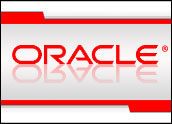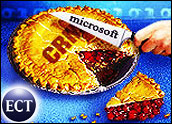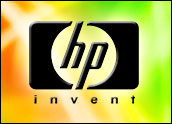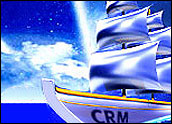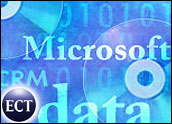
Microsoft’s latest CRM release takes a giant step from previous versions, adding several key functions to its Dynamics CRM 3.0. Although the company said the new version will be more competitive with CRM giants Oracle and SAP, one analyst said Microsoft is still playing mostly in the small and medium business (SMB) market.
“We will see some traction in larger enterprises, but more at the division level where a division chooses on its own to change CRM systems,” Liz Herbert, a Forrester Research analyst, told CRM Buyer. “Oracle, SAP and Siebel tend to be long deployment, high-cost, high-risk investments, whereas, Microsoft CRM is quicker to deploy and has a lower upfront cost.”
Tradeoff in Function
The tradeoff, however, is that Dynamics is lacking some of the functionality of those massive programs.
Dynamics 3.0 does add service scheduling and marketing automation modules and could gradually expand throughout larger businesses.
“The way I see it expanding is if it starts out at the divisional level,” Herbert said. “Eventually I could see these divisions start to expand throughout the company. Microsoft still runs Siebel, but they’re starting to expand their Dynamics use. I just don’t know if they would ever become the kind of CRM business that has millions-of-dollars rollouts.”
Some Market Advantages
Although she may not think Dynamics 3.0 is quite ready for large enterprises, Herbert said it does have some market advantages.
“Microsoft has always been high on the list that companies who are in the market for CRM are looking at. People trust the brand,” she said.
The company has added developer tools that make customizing much easier. In CRM 1.2, the last version of the software, released in December 2003, developers had to tweak the code itself, but now they can use the tools to do the work for them.
For businesses, the big advantage of that is the pool of IT professionals who have .Net skills already have the skills to work with Dynamics, Herbert said. That same advantage follows through to sales and marketing staff; one of Dynamics’ most attractive features may be its enhanced Outlook integration, which has remained from version 1.2.
Skills Already Learned
Salespeople can access CRM functionality through Outlook, a program they are probably already familiar with.
“In our research, our customer references show that is huge. It cuts training time for sales representatives and improves adoption,” Herbert said.
The software is available now in English in two versions, Small Business Edition and Professional Edition. Microsoft will release Dutch, French, German and Russian versions Jan. 1 and plans 17 more language versions within months.
Microsoft is selling CRM 3.0 through its volume licensing program. Professional Edition costs US$622 – $880 per user and $1,244 – $1,761 per server. Small Business Edition costs $440 – $499 per user and $528 – $599 per server.





